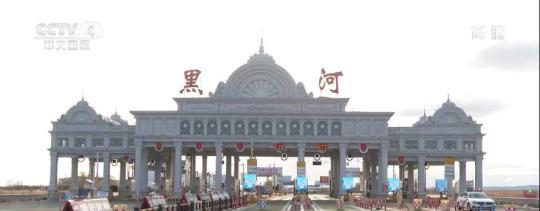CCTV News: In the
past few days, the spread of the epidemic in Ejina Banner, Inner Mongolia, has been effectively controlled.
In Heihe City, Heilongjiang Province, where new cases are concentrated, in order to stop the spread of the epidemic, the local area has increased epidemic prevention and control and reduced the flow of people, while ensuring the supply of daily life materials for the people.
Experts said that small-scale clusters of epidemics and sporadic cases have recently appeared in some areas of China, and the prevention and control situation is severe and complex, but the public must have confidence that the epidemic will be effectively controlled soon.
Ejina Banner's spread and spillover risks have been effectively controlled
In the past few days, the epidemic that occurred in Ejina Banner in Inner Mongolia has been initially controlled, the risk of spreading and spillover has been effectively controlled, and the prevention and control of the epidemic has moved from the community prevention and control stage to the zero-clearing stage.
From October 31st to November 1st, Ejina Banner has completed the eighth round of nucleic acid testing for all employees. The positive cases of new coronary pneumonia detected are all centralized isolation control personnel. The number of confirmed cases per day in Ejina Banner has also increased from the previous double digits. Down to single digits, the next step will continue to strengthen risk area control and nucleic acid testing, and thoroughly control the epidemic as soon as possible.
Heihe: Enter an emergency state to prevent the spread of the epidemic
In the past few days, the new domestic cases are mainly concentrated in Aihui District, Heihe City, Heilongjiang Province.
In order to prevent the further spread and spread of the epidemic to the greatest extent, the local government organized forces overnight to set up traffic checkpoints on 8 roads entering and leaving the city to strictly control personnel and vehicles leaving the local area. The local area also carried out hard isolation and transformation of all isolated hotels, and established 14 control teams. At the same time, more than 800 medical staff were transferred to establish 20 groups of mobile home nucleic acid collection groups. According to the principle of not leaving one person, the nucleic acid collection work was carried out.
As of November 1, the 6th round of national nucleic acid testing has been carried out locally.
Feng Junen, Head of Community Prevention and Control of the Epidemic Prevention and Control Headquarters, Aihui District, Heihe City, Heilongjiang Province: In
order to block the spread of the epidemic in the urban area, the entire city’s communities were merged into 409 duty points, with nearly 10,000 cadres and employees in 176 units in the urban area and 2,200 One volunteer went down and stayed on the front line, was on duty around the clock, and strictly implemented "scanning code + temperature measurement + wearing masks".
Xining: Guaranteed supply of "vegetable baskets" for citizens
Xining City, Qinghai Province, has recently experienced consecutive confirmed cases of new coronary pneumonia. After the outbreak, the local government has actively implemented epidemic prevention and control on the one hand, and has also increased its efforts to ensure the supply of "vegetable baskets" for citizens.
In the past few days, the local daily vegetable sales volume has dropped by about 30% compared with before the epidemic, and the wholesale price of vegetables has dropped compared with the initial period of the epidemic.
Meng Xiaoming, a vegetable retailer in Xining City, Qinghai Province: The
supply is now very sufficient, and the price is still falling. It rose when the epidemic first began, but it has fallen back in the past two days.
A few days ago, Zhong Nanshan, an academician of the Chinese Academy of Engineering, said that the new coronavirus is currently in an active period. Although small-scale clusters of epidemics and sporadic cases have occurred in some areas of China, they are believed to be effectively controlled soon. For a complete solution, the public must actively participate in vaccination. It is expected that by the end of this year, the residents will complete more than 80% of the vaccination.

